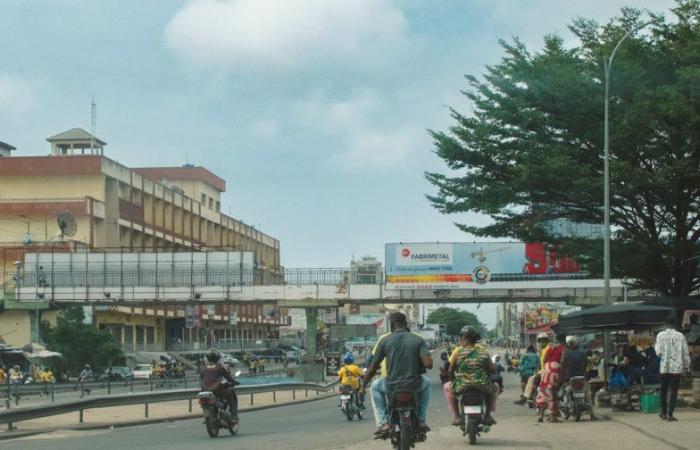The United Nations International Day against Drug Abuse and Illicit Trafficking on June 26 was an opportunity to recall that West Africa is today a sub-region invaded by psychoactive substances and other drugs.
On its website, Radio France Internationale (RFI) published an article on March 22, 2024, entitled “Drugs: Trafficking and consumption of tramadol are not weakening in West Africa.” Also, the French Anti-Doping Agency reports on its website that the World Anti-Doping Agency (WADA) has introduced tramadol into the list of banned products because studies have demonstrated its potential to improve performance and the risks of addiction in the event of abuse.
West Africa: A transit region turned into a drug market
In the West African sub-region, a conference took place in Dakar, Senegal in May 2024 on the theme: “Social sciences and drugs in French-speaking Africa. Diversification of uses, transformation of approaches”.
All of the above confirms the permanence of this phenomenon which has become almost normal. Indeed, over the last ten years, “West Africa has gone from being a transit country to a drug market”. Despite its variation, this consumption remains recurrent and poses a real public health problem that is very little covered in public spaces and by public policies.
Read more: Emergence of new drugs in West Africa demands rapid response
Aware that West Africa has become “addicted” to tramadol and other psychoactive substances and drugs, the ECOWAS Commission is devoting a report to it entitled “WENDU report”. This report indicates the consumption of a wide range of psychoactive substances: cannabis, pharmaceutical opioids, khatcocaine, heroin, methamphetamine and chemical precursors of methamphetamine such as ephedrine.
These different substances were the main drugs seized in the area from 2016 to 2019. This report also indicates the recurrence of polydrug use. The non-medical use of pharmaceutical opioids, including tramadol, has also been documented.
Figure 1: Gender and substance use
According to this report, this consumption of psychoactive substances is no longer just a male issue. It is increasingly affecting women (see Figure 1).
Benin: hub and place of high consumption
Benin is not on the sidelines of this situation. The country is known to be a drug transit point. Indeed, several seizures of drug shipments have been made directly in Benin or in countries of the sub-region departing from Benin. Many members of cartel networks have been arrested in Benin.
The RFI media reports, for example, significant seizures of tramadol in Benin in 2022, in the order of 12 tonnes. In May 2023, according to the BBC, “the Benin anti-drug brigade seized 145.5 kg of cocaine. 14 people including the head of the Central Office for the Suppression of Illicit Trafficking in Drugs and Precursors (OCERTID) were arrested.”
Ihsaan Haffejee/AFP
The country is not just a hub. It is increasingly becoming a place of high consumption. The consumption of tramadol and cannabis, among other psychoactive substances, has serious health consequences, even if their illegal sale and abusive consumption have been curbed by tracking carried out in recent years. Several social groups are affected, especially teenagers but also those who work in arduous jobs as well as motorcycle taxi drivers.
Figure 2: Consumption of psychoactive substances in Benin per 100,000 inhabitants between 2016-2019
WENDU Report, ECOWAS, 2018-2019
When motorcycle taxi drivers take “para”
Driving motorcycle taxis constitutes an escape for many young people lacking employment and qualifications, many of whom come from rural areas. This desire for self-realization, the constraints linked to the contracts they enter into and the real and anticipated health problems created by the conditions of exercise of the activity expose them to the self-consumption of medicines and especially psychoactive substances. To camouflage the consumption of these substances, drivers call them “para”.
In an article published in 2023, our team showed the implications of this self-consumption of drugs and psychoactive substances among these actors. The drugs they use are of three types: products that are classified as “industrial pharmaceutical drugs”, psychoactive substances that straddle modern drugs and local drugs, and herbal teas that are considered local drugs.
[Déjà plus de 120 000 abonnements aux newsletters The Conversation. Et vous ? Abonnez-vous aujourd’hui pour mieux comprendre les grands enjeux du monde.]
In our survey, the majority of motorcycle taxi drivers (58%) buy medicines in the informal market. 17% of them alternate between supplies on the informal market and in pharmaceutical pharmacies, depending on the illnesses they face.
With regard to purchasing on the informal market, due to police repression, we are witnessing a change in behavior, notably with camouflaged sales as well as sales taking place in a domestic environment. In the case of disguised sales, the seller does not display the sale of medicines. He “passes” the drugs under the guise of selling other items. It thus provides codes to buyers which they use to purchase the products.
Several factors favor the purchase and consumption of psychoactive substances, especially tramadol, by motorcycle taxi drivers. Among the most important, we will cite: the geographical accessibility of the drug, the financial capacity to purchase it and the possibility offered by the illicit market of obtaining only one or two tablets and not a whole box.
The reason: arduous work, constant stress, physical pain, etc.
Why do motorcycle taxi drivers take “para”? Several factors come into play in making the decision in favor of self-consumption, but not exclusively. It is generally a mesh of factors that is observed.
Among the factors underlying the consumption of psychoactive substances among motorcycle taxi drivers, we will cite:
-
the arduousness of the work or the “need to keep going at all costs”;
-
personal history;
-
the search for performance and/or endurance on the handlebars and therefore the fight against fatigue;
-
the domination of fear (linked to the fear of not achieving one’s own objectives and of honoring commitments to motorcycle owners) and constant stress (due to the pace of work, real or anticipated police repression, etc.)
-
relief of physical and moral pain;
-
the search for pleasure and belonging to practicing or addictive relational networks;
-
the youth of motorcycle taxi drivers;
-
lack of awareness of the setbacks and repercussions linked to excessive consumption of medicines and especially SPAs;
-
the active, even frantic search for gains at the cost of all sacrifices to meet obligations, provide for needs, pay tontines, “perform” in peer groups and face other existential constraints;
-
the failure of repression.
There is no reliable data on the consumption of tramadol and psychoactive substances by motorcycle taxi drivers in Benin. However, there has been an increase in the non-medical use of these products by these actors. This use is often observed among taxi drivers who work day and night and who call themselves “Zò mă ci” (literally “without putting out the fire, without stopping”). Those who are under contract are given motorcycles or squat on motorcycles and are subject to constraints in terms of earnings. They drive, “without turning off the engine”, from morning to evening and even at night.
Consumption patterns and induced health effects
Finally, three modes of consumption are observed: identity consumption to mark belonging to a network; individual consumption and mimetic consumption. These modes of consumption are generally independent of the intellectual level, professional origin and religious affiliation of motorcycle taxi drivers.
Most often, tramadol and other psychoactive substances are not consumed alone. They are usually diluted in other substances or consumed in combination to prolong their effects. This polydrug consumption involves tea Ataia local tea from the Sahel countries, especially Niger, black coffee, solvents, energy drinks and others. It increases health risks.
Furthermore, beyond addiction, the doctors met in our study raised a risk of hepatic diseases (at the liver), convulsive attacks, respiratory depression and nephritic consequences (at the kidneys). In addition, this consumption exposes motorcycle taxi drivers to more traffic accidents.






